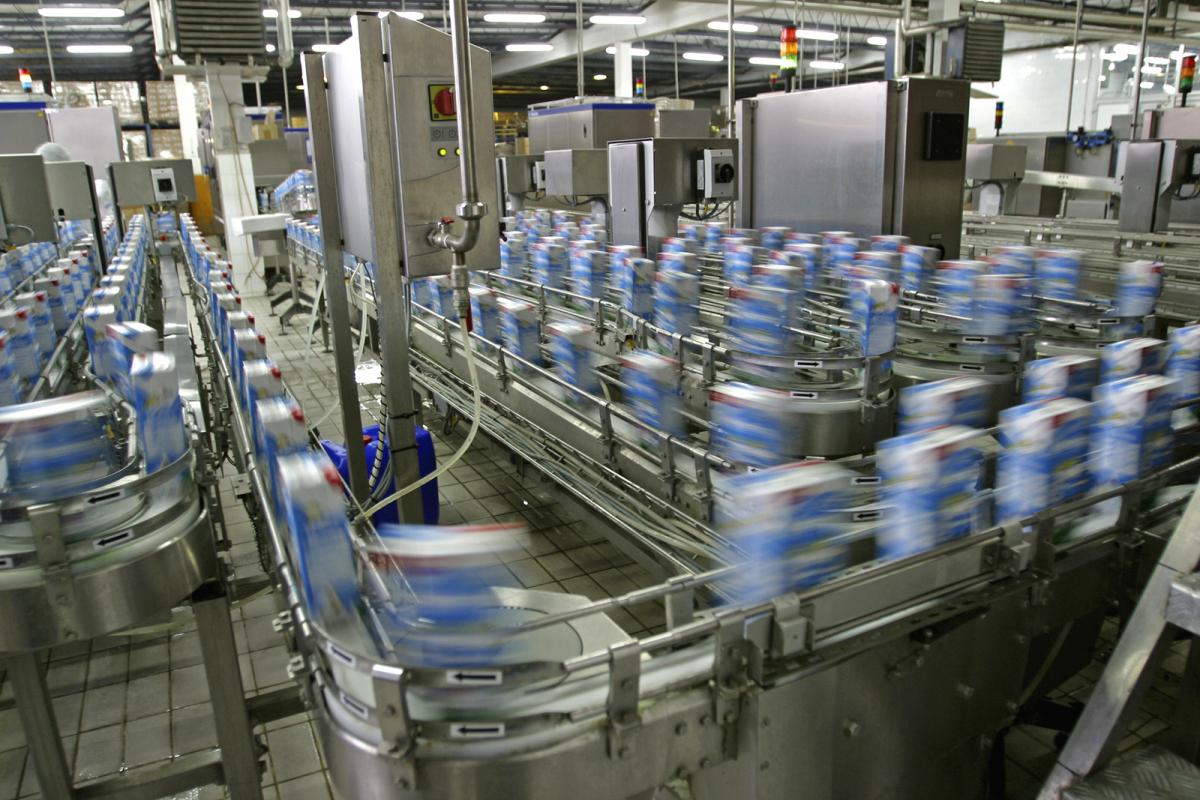INEX has seen its refrigeration energy consumption drop after it started using Dyneo permanent magnet motor technology from Control Techniques & Leroy-Somer. The solution which also features a Leroy-Somer Powerdrive high-power modular drive, is being used in an industrial refrigeration system that cools milk after pasteurisation or sterilisation.
The company based near Ghent in Belgium was founded in 1898 to manufacture and package milk, chocolate milk, buttermilk, fermented milk, yoghurt, cream and butter for large European retail chains and multinationals. It has around 440 employees and annual sales of circa €150 million.

Production line at Inex which manufactures and packages milk, cream, butter and other dairy
Since refrigeration is a key element in the manufacturing process, optimum operation and reliability is paramount. As part of a recent investment package, Inex acquired four new industrial refrigerator systems based on Sabroe SMC 106E reciprocating ammonia compressors. At the time, the company had heard good reports of permanent magnet motors and wanted to install one as a trial. As a result, three of the compressors were supplied with standard Leroy-Somer IE2 (90kW) asynchronous AC motors, and one with a Leroy-Somer IE4 (105kW) synchronous permanent magnet motor from the Dyneo range.
The refrigeration systems are used to cool water to 1°C, which in turns cools milk to around 4°C. The installation operates almost continuously, but at variable load. Here, the benefits of permanent magnet motors come to the fore as their performance retains almost constant partial load, unlike standard asynchronous motors, generally leading to a reduction in energy consumption.
To put the theory to the test, Control Techniques and Leroy-Somer’s experts visited Inex after the installation was complete. They discovered that the refrigerator operating with the Dyneo permanent magnet motor was delivering significant energy savings.
Using a digital energy analyzer, the drive and motor experts made a series of power measurements comparing two refrigeration units working at the same conditions. One featured the LSRPM280SC-T synchronous magnet motor (105kW) running at 1500 rpm and Leroy-Somer Powerdrive, while the other housed the standard LSES280MK-T (90kW) asynchronous motor running at 1487 rpm and a competitor drive.
It was found that energy savings were being achieved using the permanent magnet motor across a range of different load profiles. Depending on the type of measure – involving number of pistons, speed, evaporation temperature and condensation temperature – the calculated energy savings were between 18-21%, taking into account any losses from the drive and the motor.
Zip Boots Designer Shoes
 iConnectHub
iConnectHub
 Login/Register
Login/Register Supplier Login
Supplier Login



























